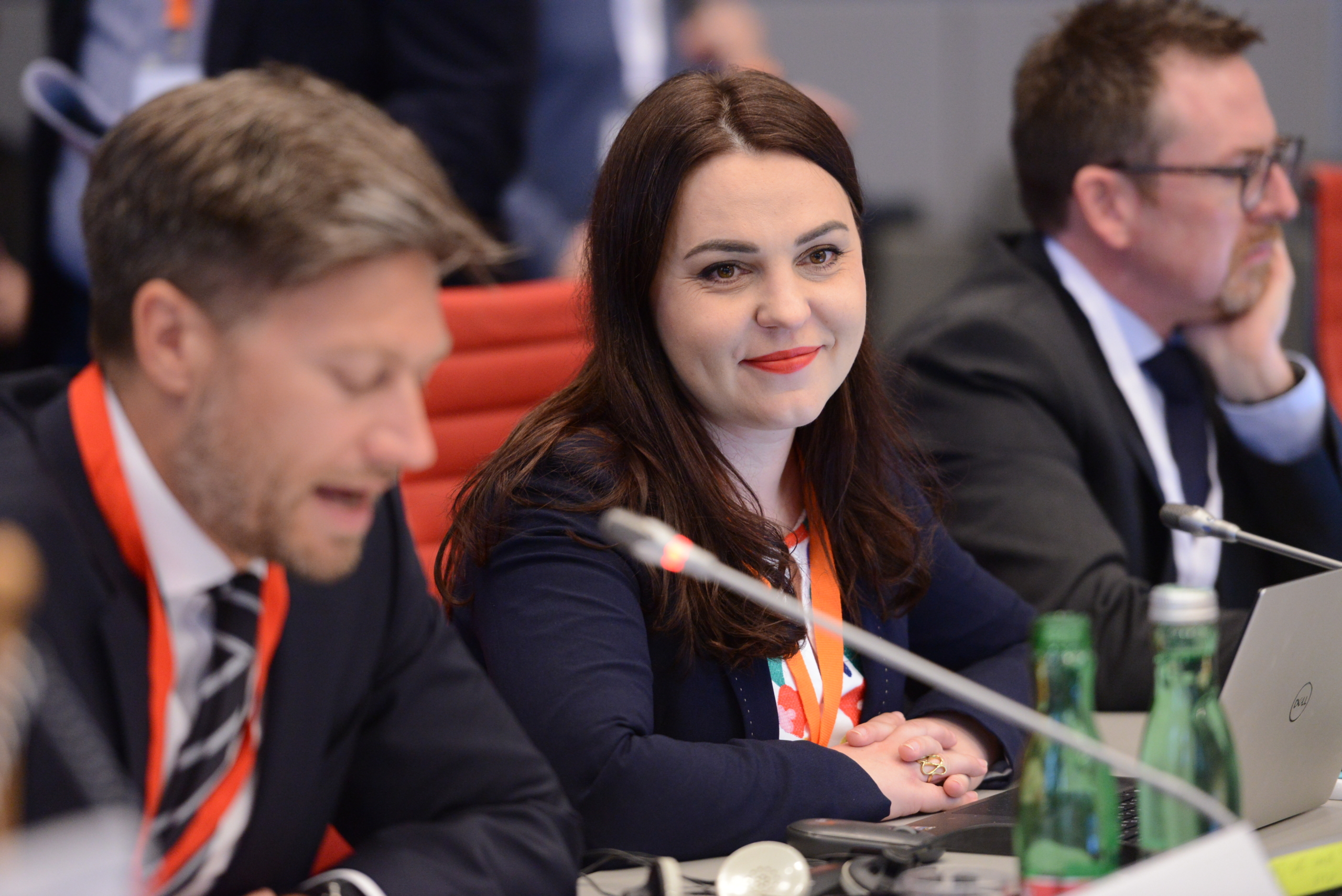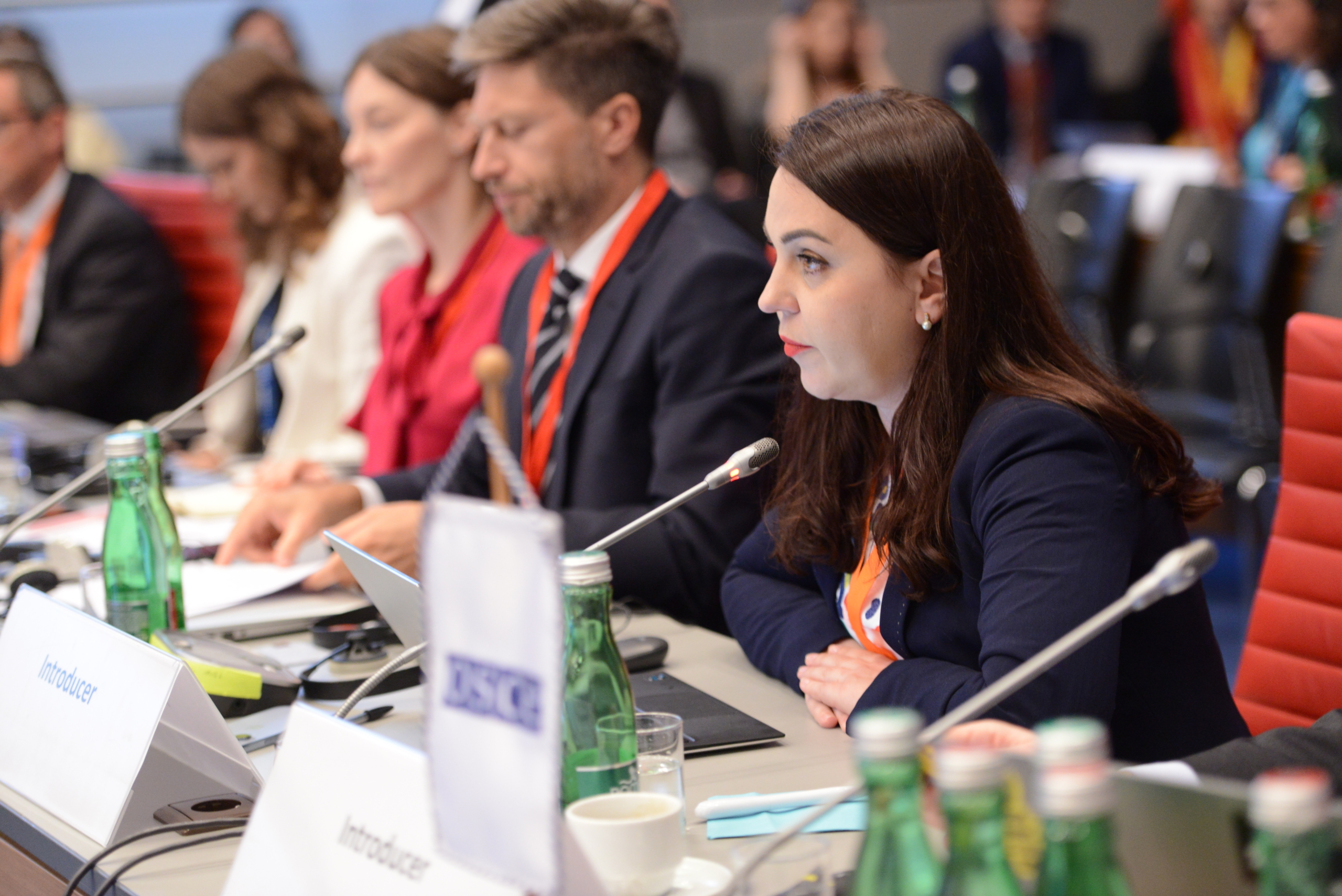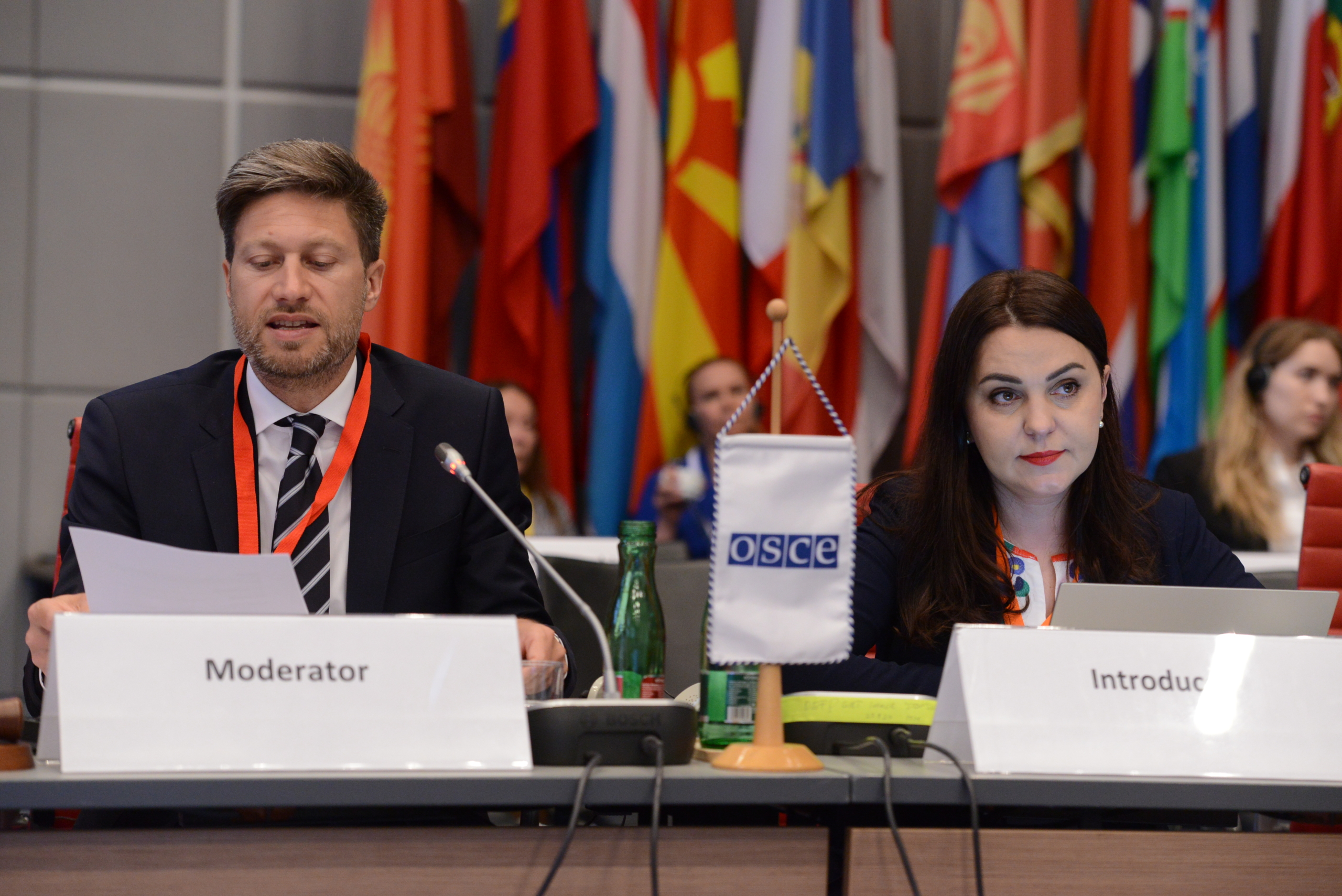On freedom of peaceful assembly in Ukraine: Tetiana Pechonchyk spoke at the OSCE meeting
The OSCE Supplementary Human Dimension Meeting on “Protecting Civic Space – the Role of Human Rights Defenders and Freedom of Peaceful Assembly” has started in Vienna. Tetiana Pechonchyk, the Head of the Board of the Human Rights Centre ZMINA, spoke during the first panel session about the freedom of peaceful assembly in Ukraine.

Pechonchyk noted that over several decades of independence, Ukrainians have realised that freedom of peaceful assembly is the oxygen for democracy and have learnt to interact with the authorities in a way that respects this right. Freedom of peaceful assembly is so valuable that rallies are held all over Ukraine even under martial law.
However, the situation in the temporarily occupied territories of Ukraine is fundamentally different. Pechonchyk drew the diplomats’ attention to the peaceful resistance that has been going on for eleven years in a row in the temporarily occupied Crimea, and recalled the story of Crimean Tatar Reshat Ametov. On 3 March 2014, he took part in a peaceful picket against the occupation in Simferopol. Then Ametov stood in one place for an hour and a half in front of the building of the Council of Ministers of Crimea. After a while, three people from the so-called Crimean self-defence units approached him. They took Ametov off the square, bundled him into a car and drove him in an unknown direction.
“After that, no one saw Reshat Ametov alive. Less than two weeks later, on 15 March 2014, the man’s body was found in the village of Zemlianychne, Belogorsk district, 60 km from Simferopol. Reshat’s body had numerous signs of torture; his head was tied with tape, his eyes were gouged out, and handcuffs were lying next to him. The cause of death was a stab wound to the eye. This is the ‘freedom of peaceful assembly’ that exists in the occupation,” said Tetiana Pechonchyk.

Peaceful assemblies in Crimea continued, and people gathered near courts to support their imprisoned relatives; they collected buckets of coins to pay fines. The occupation authorities responded with new detentions, arrests, and fines until they completely suppressed freedom of assembly in Crimea.
Since the beginning of Russia’s full-scale invasion of Ukraine, according to the human rights defender, a new wave of non-violent civilian resistance has begun in the newly occupied territories. Between February and June 2022, Novact counted more than 100 peaceful protests against the Russian invasion in settlements that were already under Russian control at the time.
Tetiana Pechonchyk said that Russia harshly dealt with the protesters: they were abducted, tortured and executed. Some of these people are still unknown, as the Russian Federation has been holding them in its numerous pre-trial detention centres for years without any charges. Other activists faced criminal charges and were accused of terrorism, extremism and sabotage.

“Eventually, Ukraine will regain control of all the occupied territories – from Crimea to Luhansk – sooner or later. This is not only about restoring the territorial integrity of the state, international law and order, the principle of inviolability of borders, and the impossibility of dictating one’s demands by force. It is about human rights, and one of the most fundamental of them is the freedom of peaceful assembly. This is about returning our voice and subjectivity to our people in occupation, the right to speak and the right to be heard,” Tetiana Pechonchyk concluded.
Michael Hamilton, Legal Adviser of Amnesty International and Acting Chair of the OSCE-ODIHR Panel of Experts on Freedom of Assembly and Association, and Phil Lynch, Executive Director of the International Service for Human Rights, also joined the discussion during the first panel session, moderated by Andrew Gardner, Acting Head of the ODIHR Human Rights Department.
ZMINA, in cooperation with Ukrainian and international partners, also held special events “Voices in the Darkness: Civil Society Resistance and Losses during Russia’s War against Ukraine” and “Civil Society in Russian Captivity: Enforced Disappearances and Arbitrary Detentions by Russia as a Tool to Erase Civic Space in Occupied Territories of Ukraine“.
For reference. The OSCE Supplementary Human Dimension Meeting is a special forum organised several times a year by ODIHR (Office for Democratic Institutions and Human Rights) to discuss topical issues in the field of human rights, democracy, the rule of law and non-discrimination. The meetings are attended by representatives of OSCE participating States, international organisations and civil society. The goal is to share experiences, identify challenges and develop recommendations to improve compliance with commitments in the humanitarian dimension.
If you have found a spelling error, please, notify us by selecting that text and pressing Ctrl+Enter.















